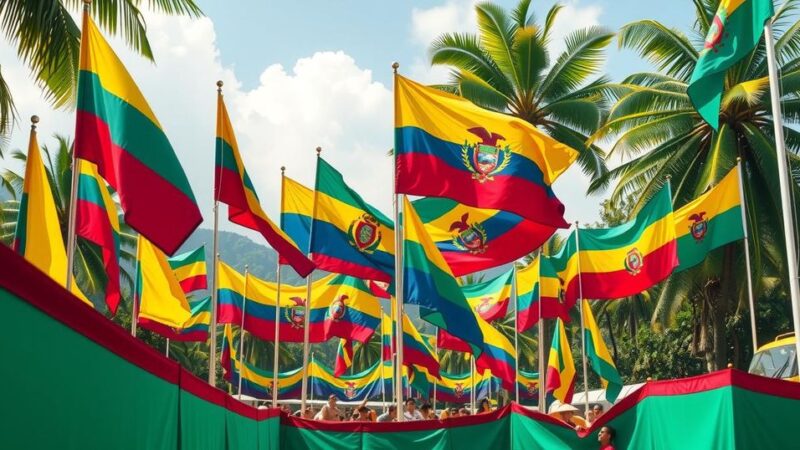Jhoan Bastidas, a Venezuelan deported from the U.S., recounts his detention at Guantanamo Bay and his struggles to reintegrate into Maracaibo, Venezuela. Along with hundreds of fellow deportees, he faced challenges stemming from the stigma of gang affiliation linked to his tattoos. Despite the harsh realities of his homeland, he remains hopeful and determined to rebuild his life.
After being deported from the United States, Jhoan Bastidas recounted his 16 days of detention at Guantanamo Bay, where he was confined in a small room with minimal food. At 25 years old, he reflects on the difficulties of returning to Venezuela after experiencing a troubled migration journey. The stigma of his tattoos and wrongful associations with criminal gangs complicate his reintegration into his hometown of Maracaibo.
Approximately 350 Venezuelans, including Bastidas, were returned to Venezuela from the U.S., many after being held at Guantanamo Bay. The transfers are part of a broader initiative by the Trump administration to reduce undocumented immigration, although the government’s claims regarding gang affiliations remain largely unsubstantiated. Bastidas describes the struggles of his time in detention, where he felt immense despair and sought solace through prayer with fellow detainees.
Before his departure, Bastidas witnessed the dire conditions in Venezuela, including economic hardship and food scarcity, which propelled his migration to the U.S. in search of better opportunities. He sought safety in Texas after receiving support from family. Upon surrendering to U.S. authorities, he was ultimately transported to Guantanamo Bay, unaware of the location’s notorious reputation.
His experience within Guantanamo was marked by isolation and strict confinement. He was able to venture outside for limited time during recreation, but he often felt as though he lost all sense of time. Bastidas asserts that his tattoos are not indicative of gang affiliation, believing that authorities misjudged him based on appearances.
Upon his return to Venezuela, Bastidas found a changed Maracaibo, once a thriving city now facing severe economic challenges. Many residents are familiar with the migration crisis, evidenced by countless stories of individuals seeking better lives abroad. Despite the turmoil, Bastidas intends to stay resilient, viewing his experiences as part of a larger purpose determined by faith.
He has resumed life in Maracaibo, taking on work at a local hot dog stand. Although the community struggles, Bastidas remains hopeful and motivated to rebuild his life after facing significant hardships during his migration journey.
In summary, Jhoan Bastidas’ story illustrates the struggles of Venezuelan deportees navigating life after their return from detention. His experience at Guantanamo Bay highlights the issues surrounding immigration enforcement and unjust stigmatization based on appearances. Returning to a country marked by economic collapse, Bastidas chooses resilience and faith as he seeks to adapt and thrive in his hometown of Maracaibo.
Original Source: www.clickorlando.com






